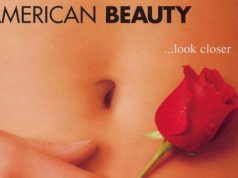
You know those movies that seem designed to be provocative, the ones that are just daring you not to like them? I frequently find myself taking the dare. Hey, movie: you want me to find you tedious and unwatchable? Okay! Be glad to!
“Anatomy of Hell” was such a film. My review of French provocateur Catherine Breillat’s genital-centric sex drama was represented at Rotten Tomatoes with this quote: “I hate this movie, but only because it hated me first.” Watching it was a miserable experience. I didn’t see how anyone could possibly like it — but then again, I didn’t try to see how anyone could like it, either. I knew I hated it, and that’s all that mattered as far as my review was concerned.
But time heals all wounds, and now, several years later, I was curious to learn what the film’s supporters admired about it. Knowing that wouldn’t necessarily change my opinion of the movie (though I was open to that possibility, however unlikely), but it might help me understand where Breillat was coming from. If we’re being completely honest and rational, we probably don’t really think someone made a film with a mission statement of “I want to repulse everyone and show hatred for all mankind.” A movie might have that effect, but it’s probably not what the filmmaker intended.
What I said then:
“This is an un-erotic sex movie, filmed in a sterile white room and full of joyless cavorting, and featuring probably the least titillating nudity ever captured on celluloid. It is about a man who hates women and a woman who hates men, written and directed by a woman who evidently hates women, too, and who shows remarkable contempt and disrespect for her audience as well. I hate this movie, but only because it hated me first…. Through it all, Breillat maintains one constant: Her movie is boring…. It feels padded, and it’s only 73 minutes. Can Breillat tell a story? Can she make a point? Or is she so caught up in her own self-proclaimed avant-garde genius that she doesn’t have time to film anything presentable? As a legitimate filmmaker she is venomous and unwatchable; as a pornographer she is unarousing. Clearly film is not her medium…. [This] is a lurid, obscene, pointless film, utterly without artistic merit or redeeming social value. It is … a vile collection of misogyny, misandry and misanthropy.” Grade: F [complete review]
The re-viewing:
I declared that “Anatomy of Hell” was “utterly without artistic merit or redeeming social value.” That was arrogantly overreaching on my part. I hadn’t read any other reviews of the film before I wrote mine (a practice followed by most critics), which means I didn’t know what case was being made for the movie’s artistic merit. It was fair for me to say I hated the film and to explain why. It would have been fair for me to consider the arguments in favor of it and reject them. But I shouldn’t have said it had NO worth as a work of art or a piece of social commentary without at least considering the perspective of the people who supported it.
Before I re-watched the film, I sought out the positive reviews so I’d have an idea of what to look for. There weren’t many. The most enlightening was the one J. Hoberman wrote for Village Voice. (I also consulted John Anderson in Newsday, Jeremy Heilman at Movie Martyr, Stephanie Zacharek at Salon, and Eric Henderson at Slant.) Hoberman calls the film “blatantly self-reflexive.” The woman in it hires a man to watch her where she is, as she puts it, “unwatchable.” Hoberman says, “Less narrative than moral tale, more meta than hardcore, ‘Anatomy of Hell’ is a movie about watching that watching.”
The film’s self-reflexiveness didn’t stand out to me the first time around. It’s a movie in which we watch someone watch someone else, but the significance of this — that it could mean Breillat is commenting on us as an audience — didn’t occur to me. All movies are artificially constructed, of course, but usually the idea is to forget that and get lost in it, not to be constantly reminded that you’re watching a movie. Hoberman says that since this film is so blatant about being artificial, the opening disclaimer about a body double being used for the most intimate close-ups is “perhaps misleading.” The point isn’t to reassure us that some no-name actress provided the orifices we’re seeing instead of a famous actress; the point is that it doesn’t matter whose bits they are because this movie, like all movies, is fake.
I wrote: “This is an un-erotic sex movie, filmed in a sterile white room and full of joyless cavorting, and featuring probably the least titillating nudity ever captured on celluloid.” Reading the positive reviews, I see that what I meant as a criticism is simply an accurate reading of what Breillat was trying to do. Yes, it’s un-erotic, joyless, and un-titillating: that’s the point. As Eric Henderson put it, “all forms of sexuality are rendered devoid of eroticism through their lack of proper context.”
I also wrote: “It is about a man who hates women and a woman who hates men, written and directed by a woman who evidently hates women, too.” On second viewing, I don’t think that’s accurate. One crucial point that I seem to have missed the first time is that when the woman talks to the man about his hatred and fear of vaginas, she’s talking about gay men, not all men. She has intentionally chosen a man who will not be aroused by her, who can examine her with something like objectivity, in order to consider why it is that his demographic is so put off by her. The man’s homosexuality didn’t seem particularly significant to me the first time; now it seems pivotal.
Moreover, I don’t think the woman hates men, nor do I think Breillat does. That seems to me like a profound misreading of the movie, like calling “Blazing Saddles” racist because it makes jokes about racists. “Anatomy of Hell” is about misogyny and gynophobia, but it isn’t itself misogynistic or gynophobic. It’s more a clinical examination. Breillat shows us something repulsive, has the characters comment on how repulsive it is, and then asks, “Why is it repulsive?” When I first saw the film, I was so disgusted by it that I didn’t bother to contemplate why Breillat was being so disgusting, much less whether my being disgusted was the whole point.
Do I still hate this movie?
All that being said, yes, I still hate this movie. But my hatred is more well-informed now. My experience was similar to my revisiting of “Freddy Got Fingered.” I still find Breillat’s movie tedious and unpleasant, but I have a better understanding of — you might even say an appreciation for — why it’s tedious and unpleasant. In the words of the Internet, I see what you did there. I can see that what I once felt was blind, unmotivated, pointless ugliness actually had some thought behind it. That makes it easier to understand why the film exists, if not to actually enjoy it. Grade: D
— Film.com




